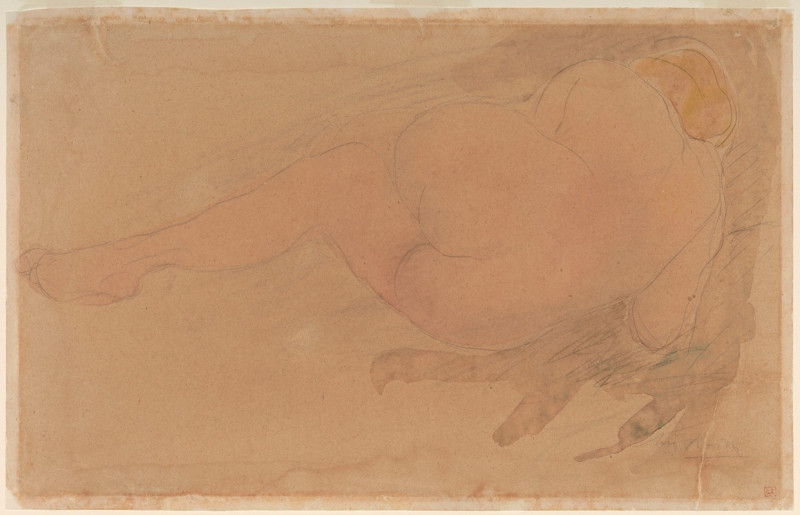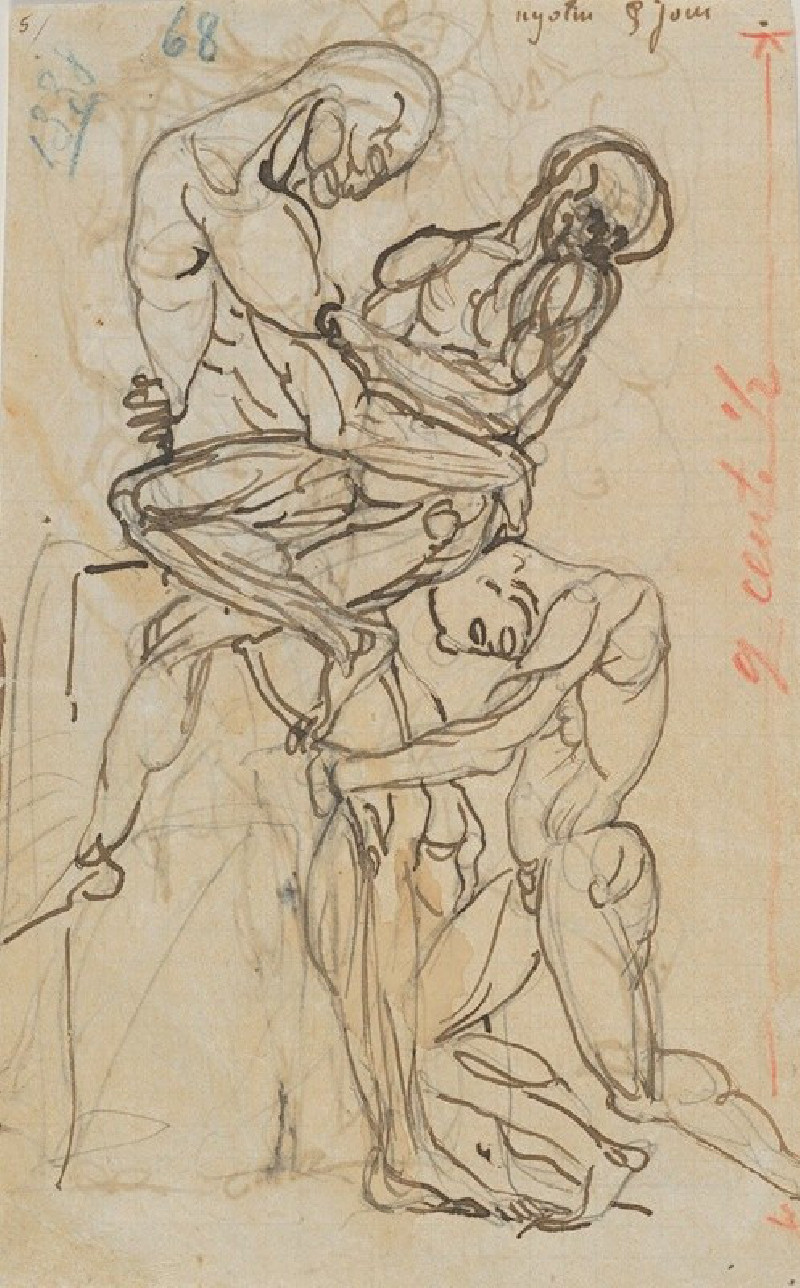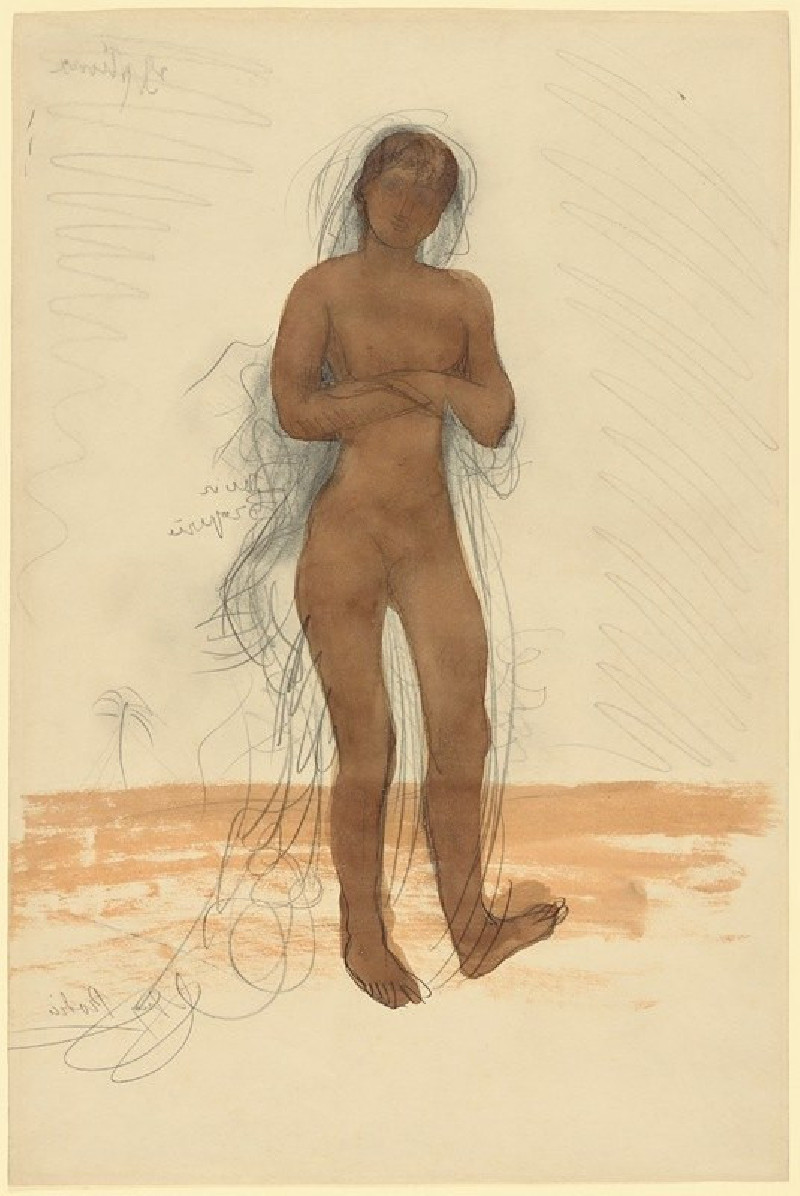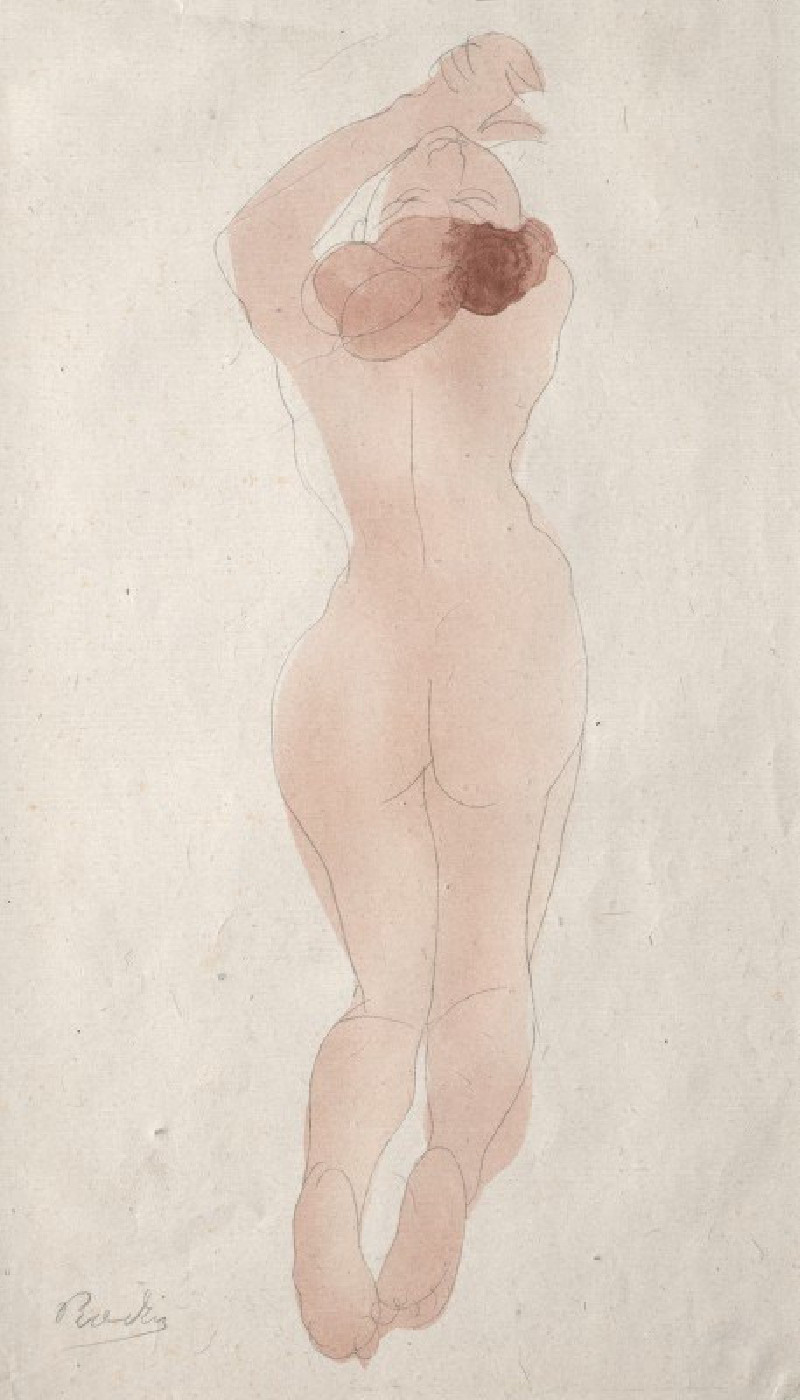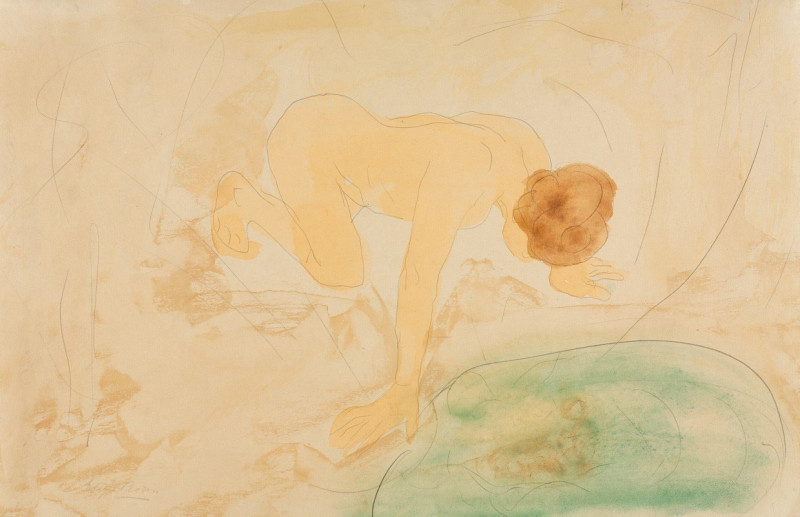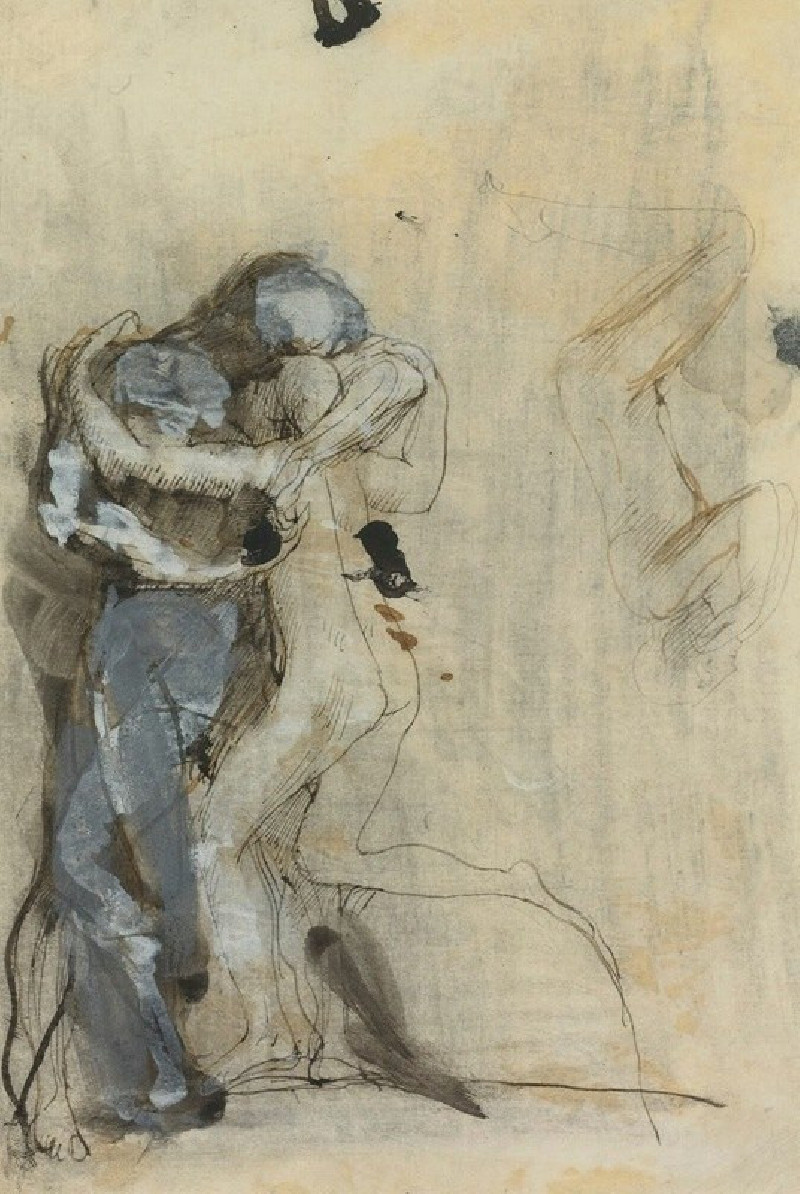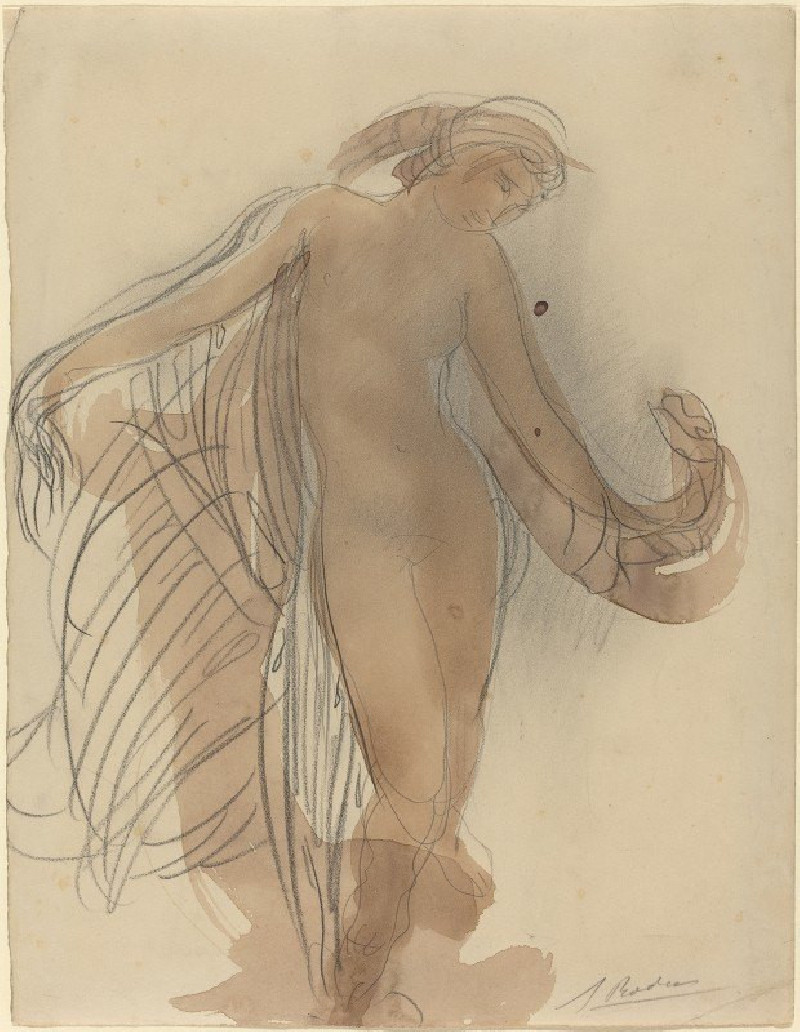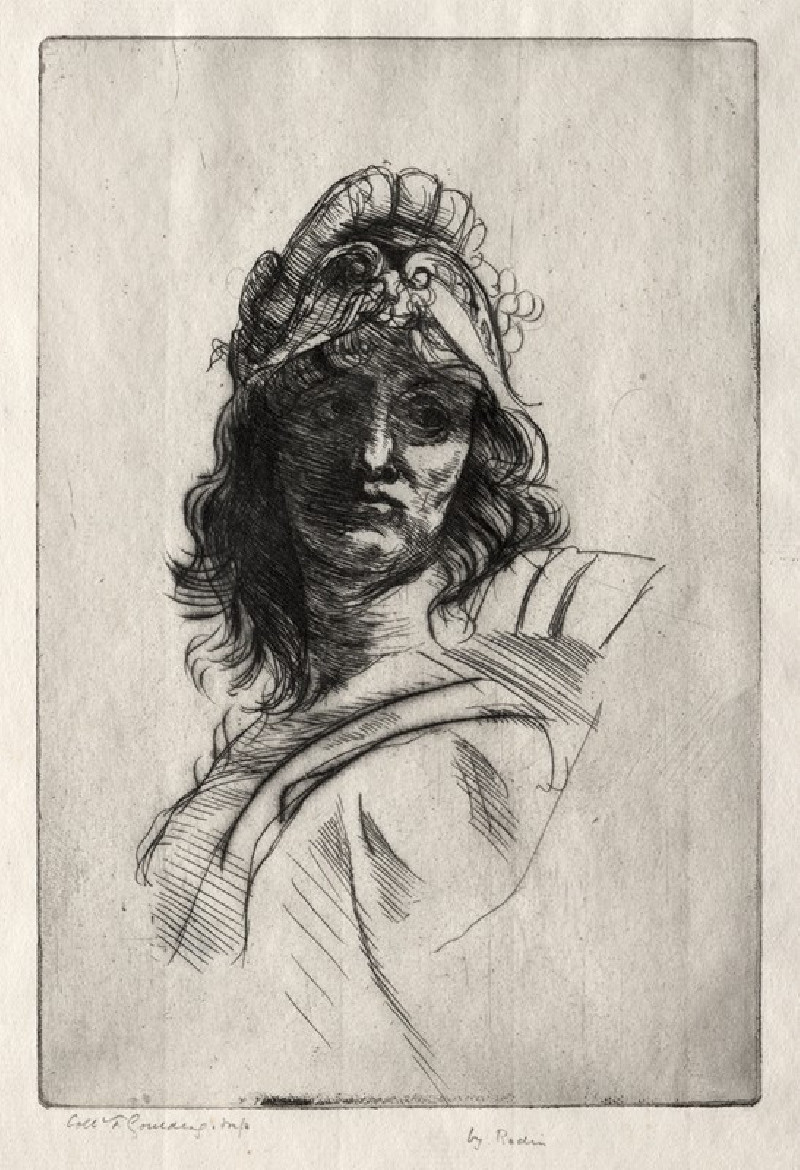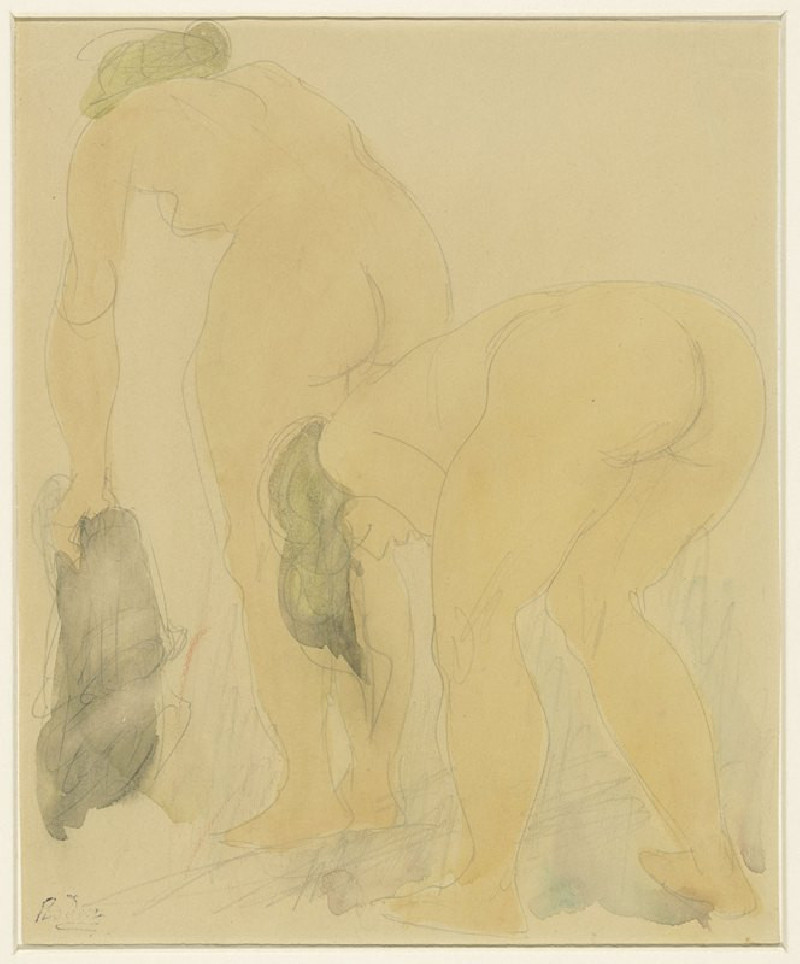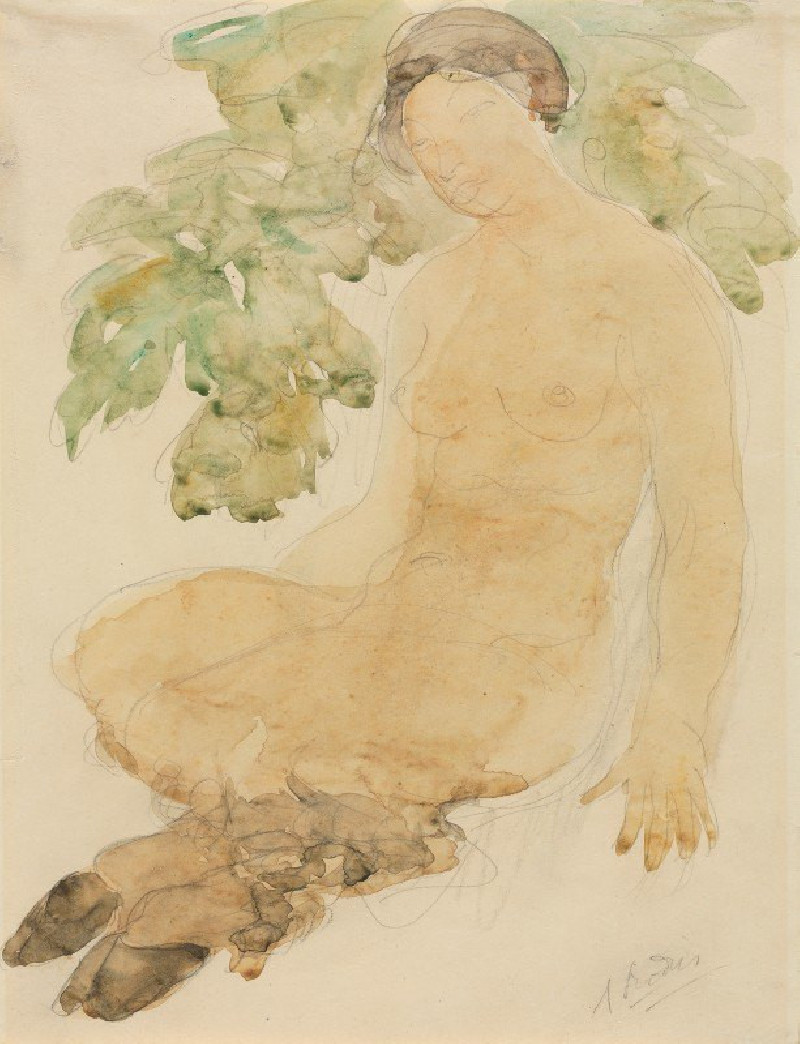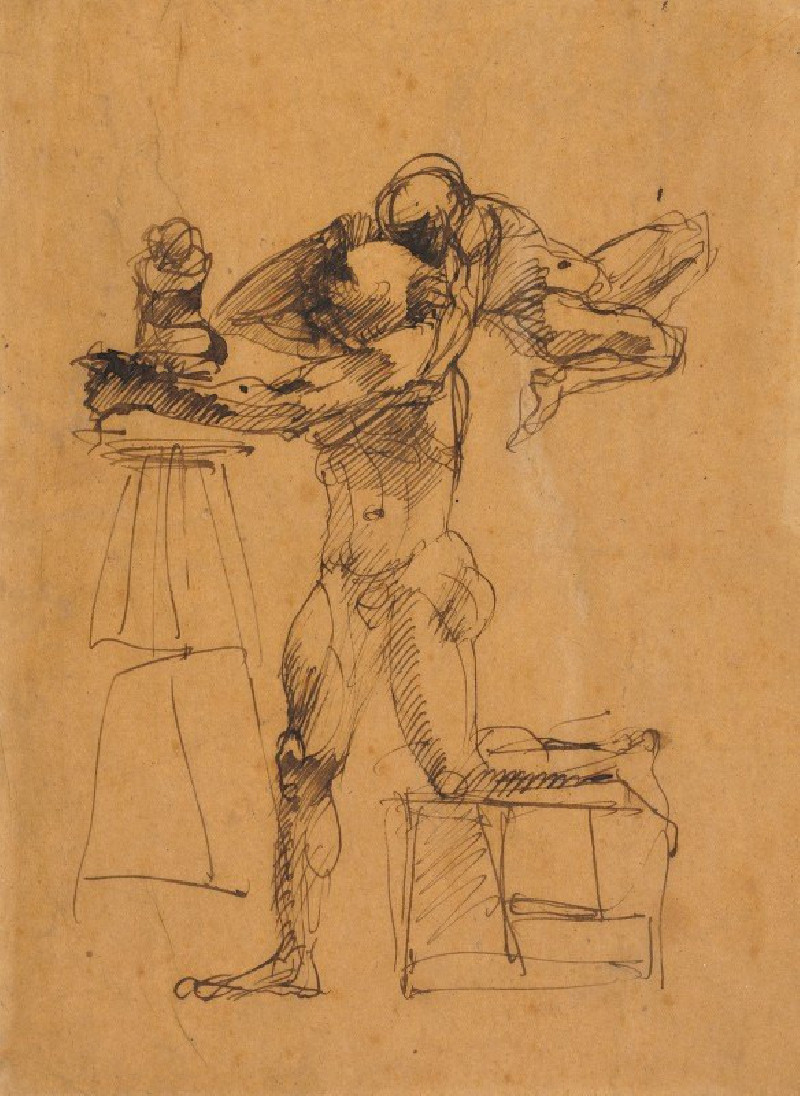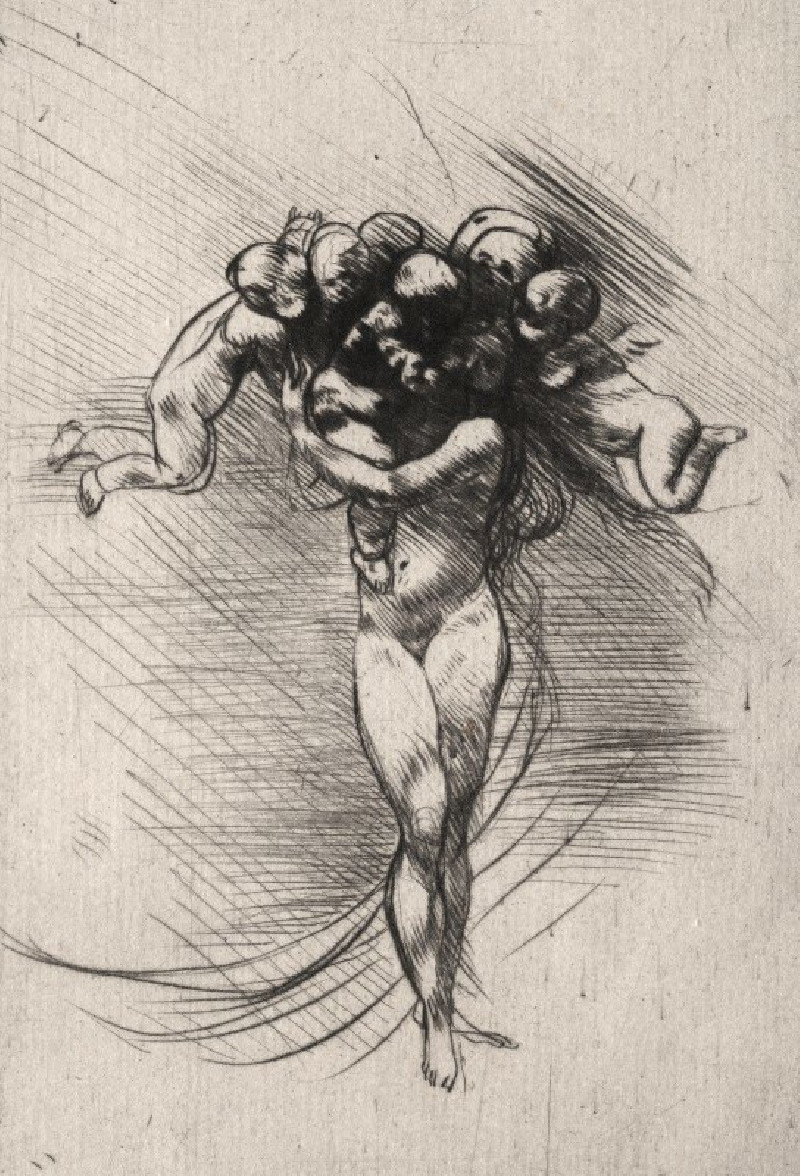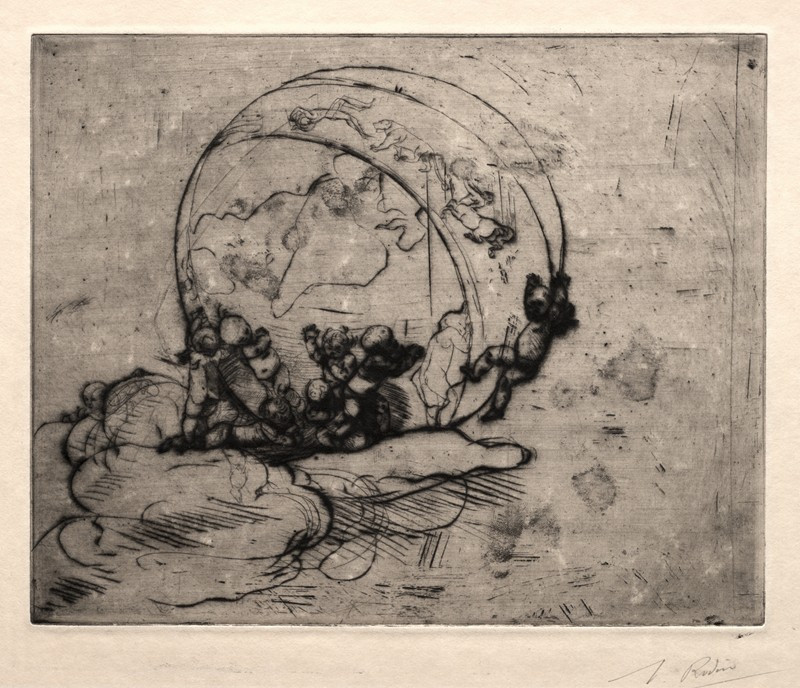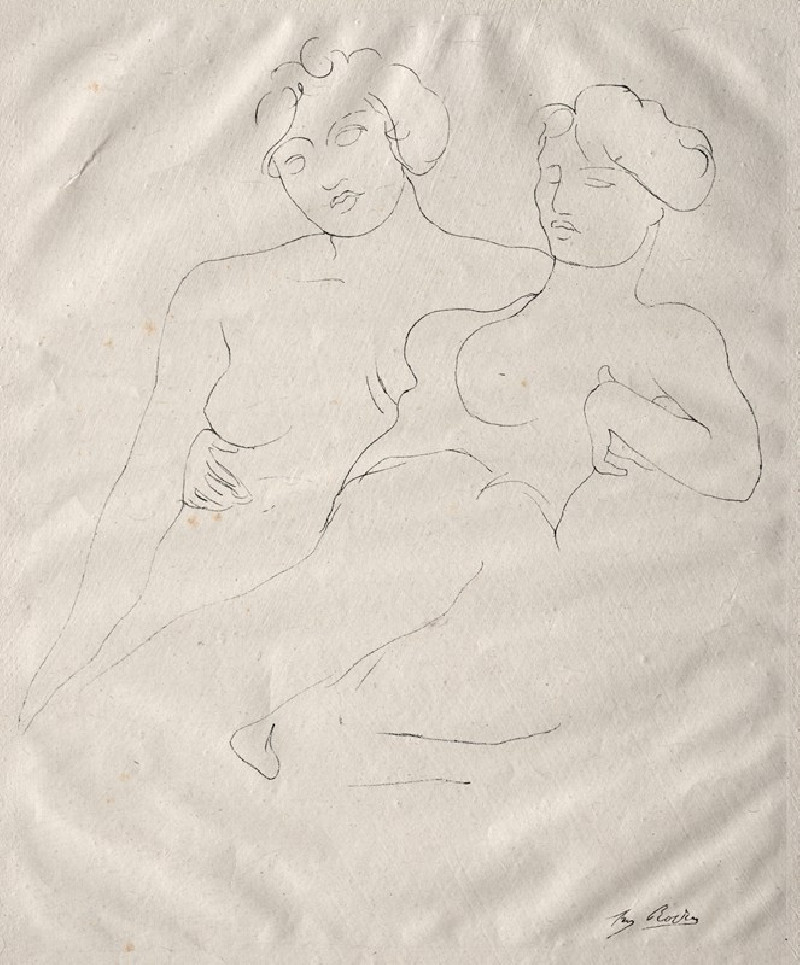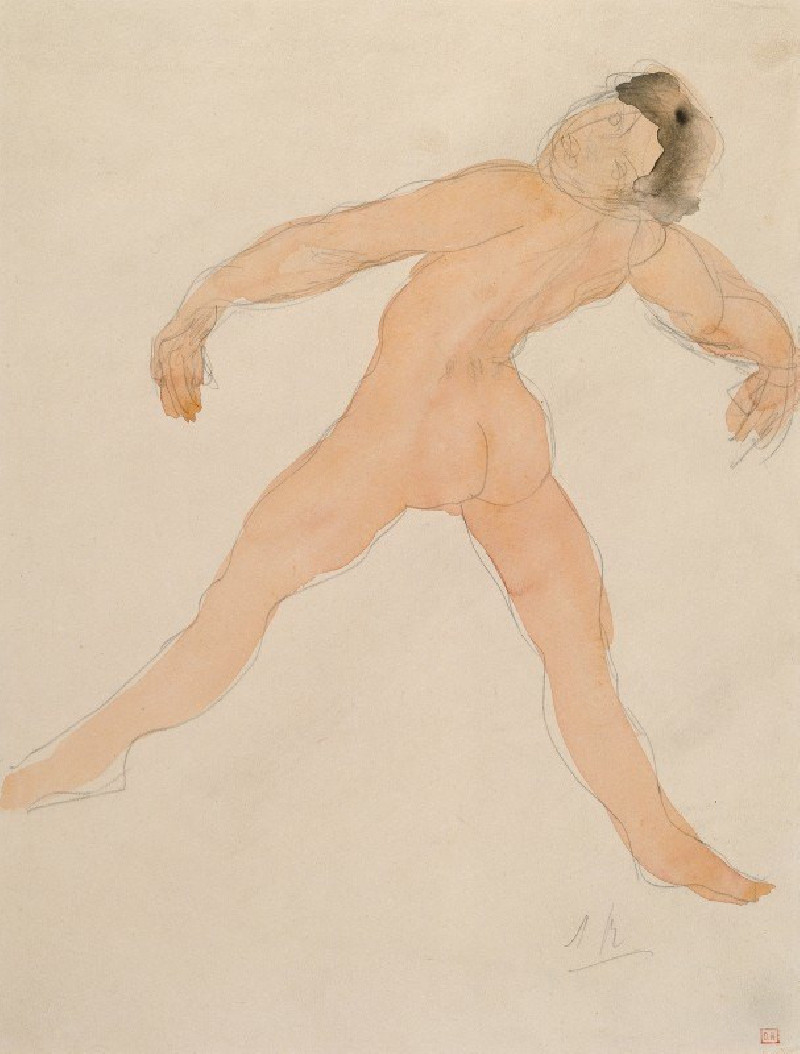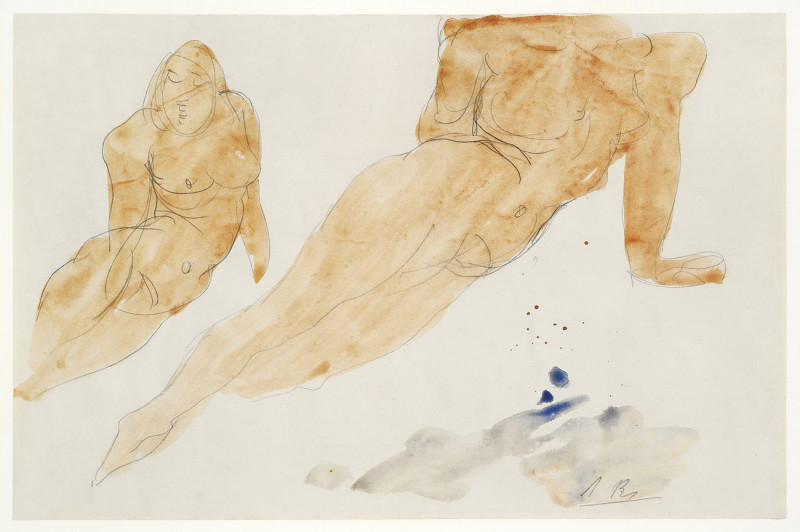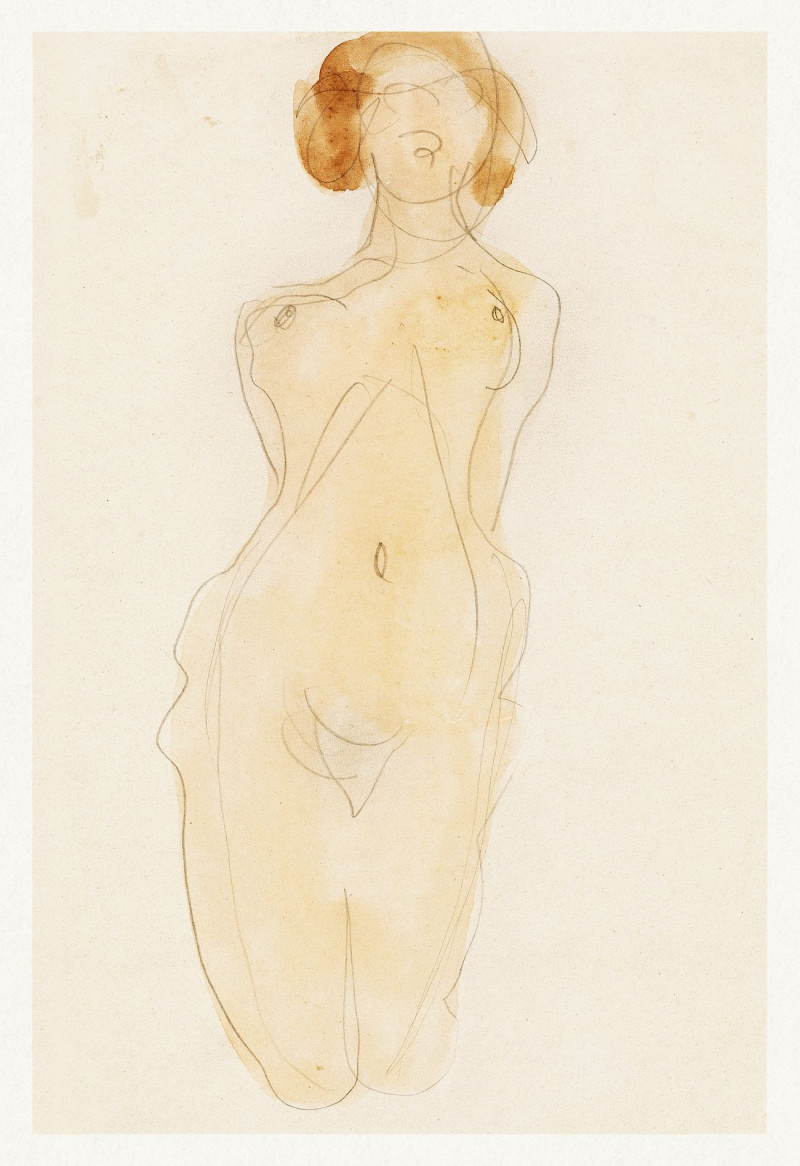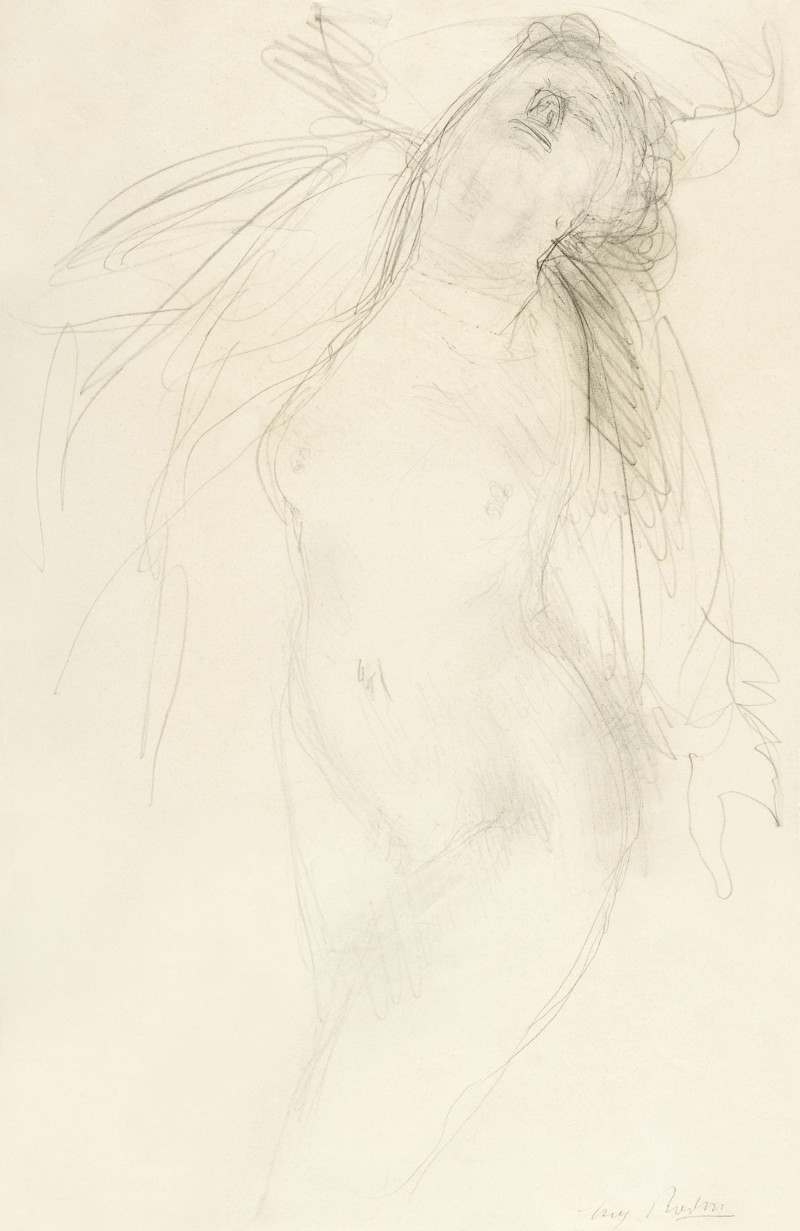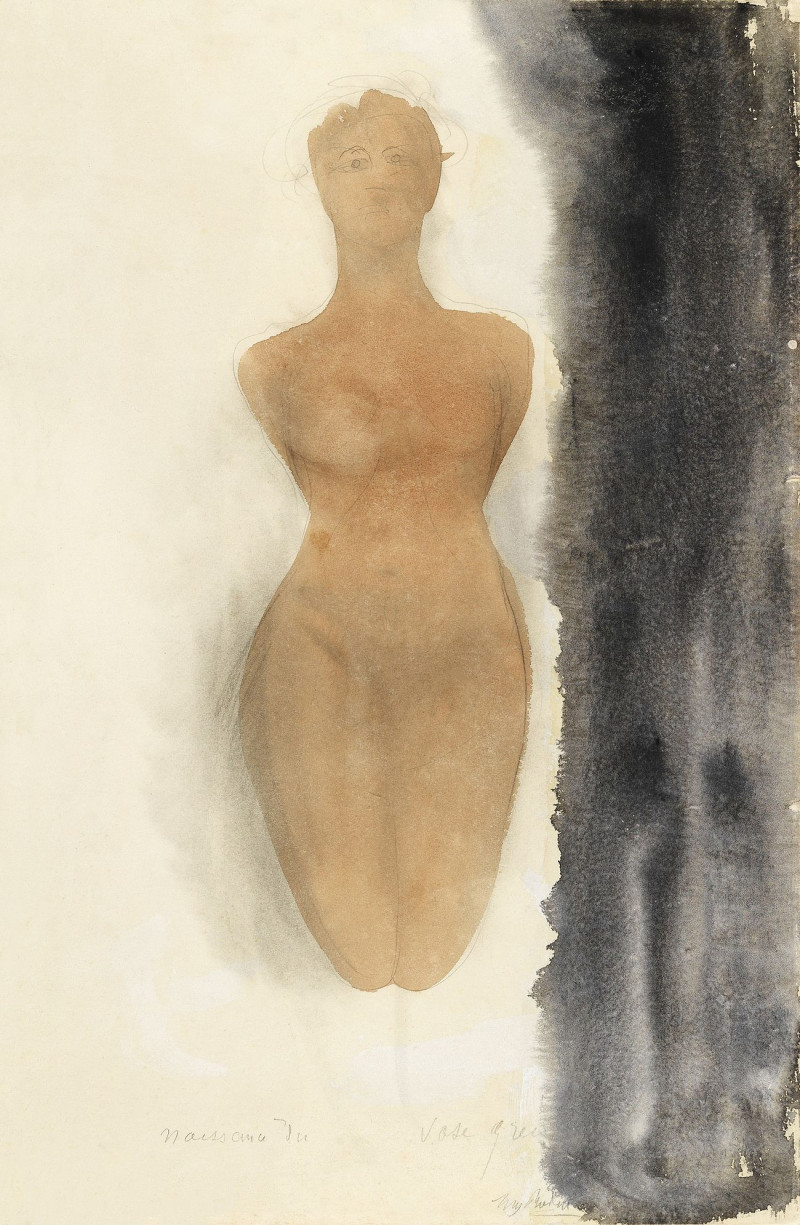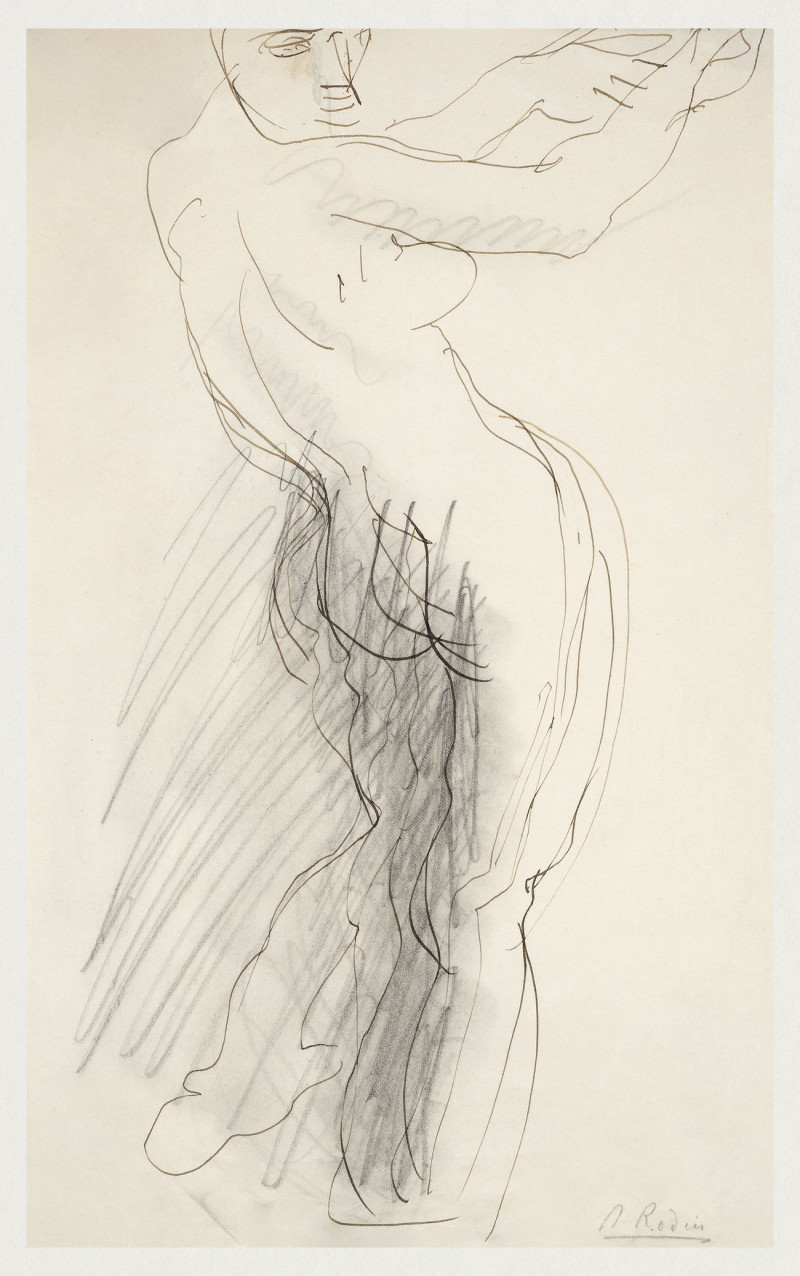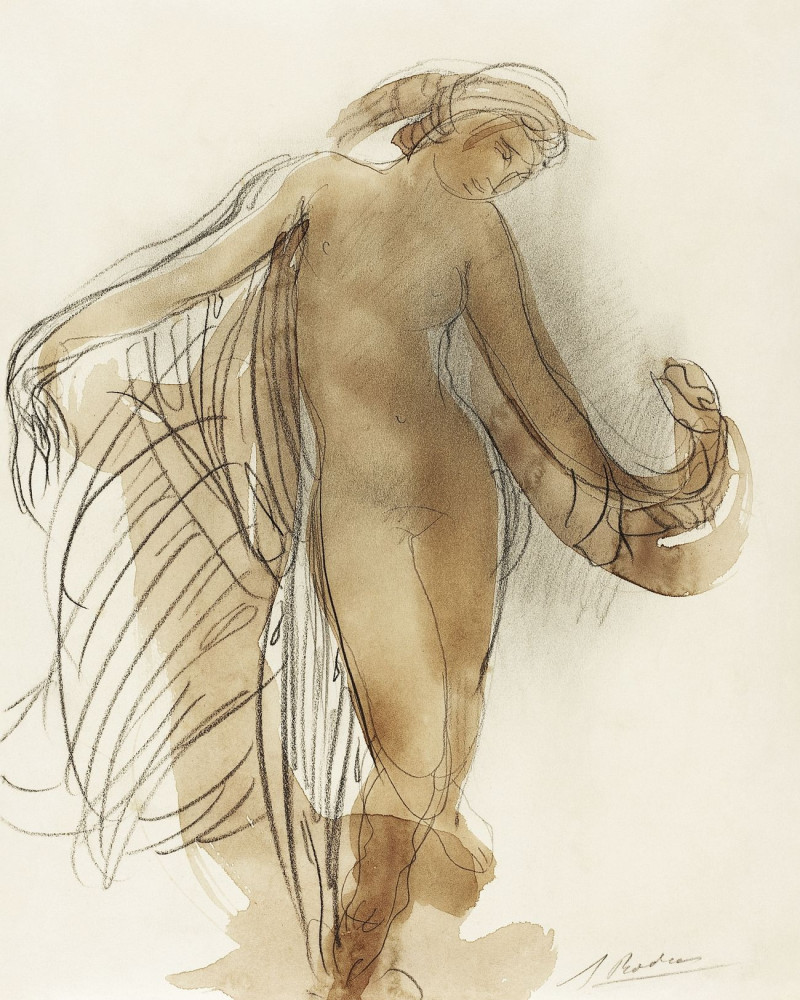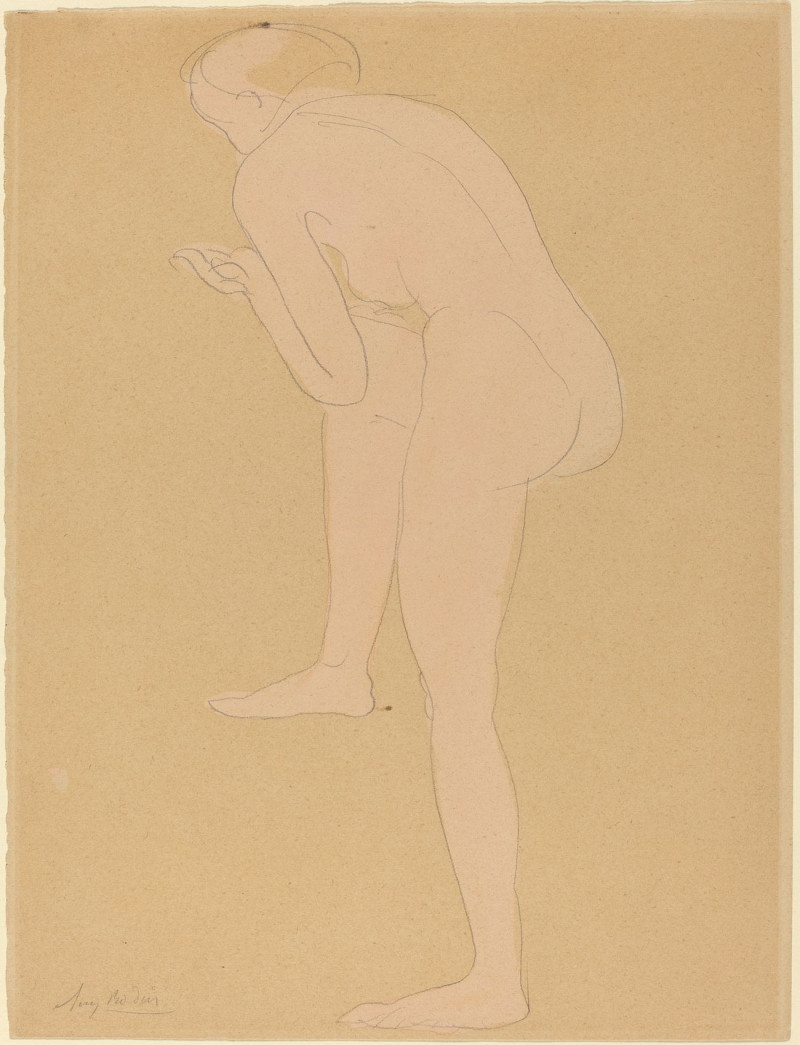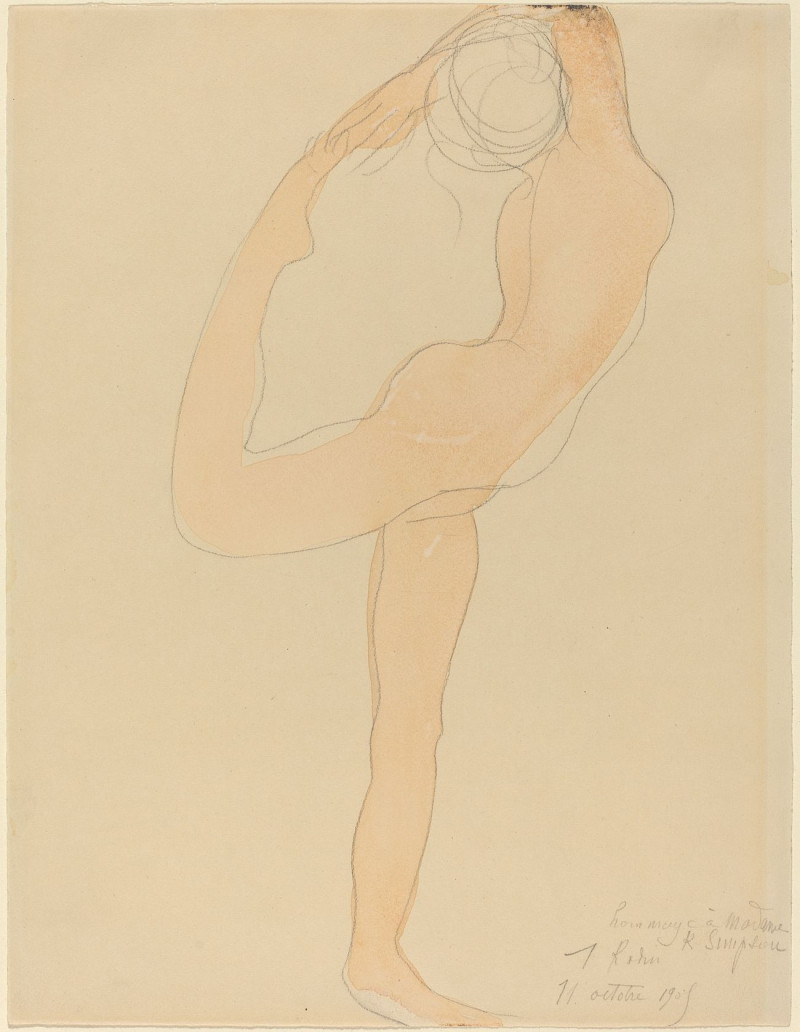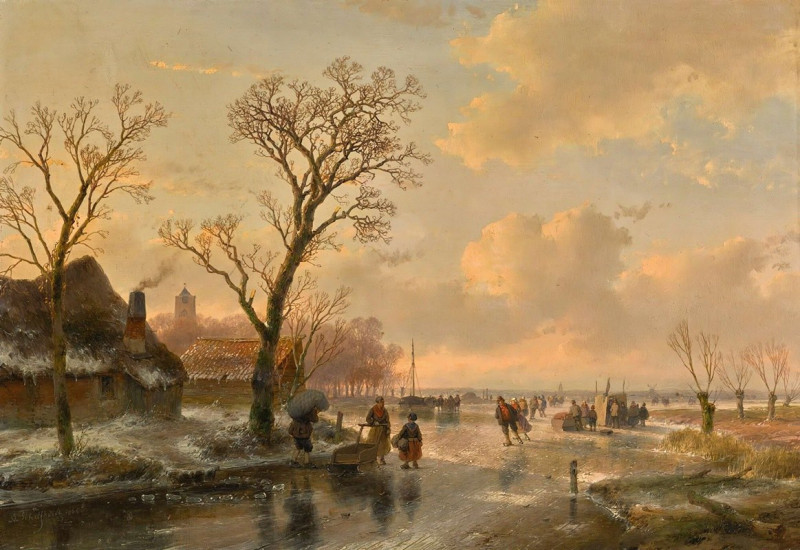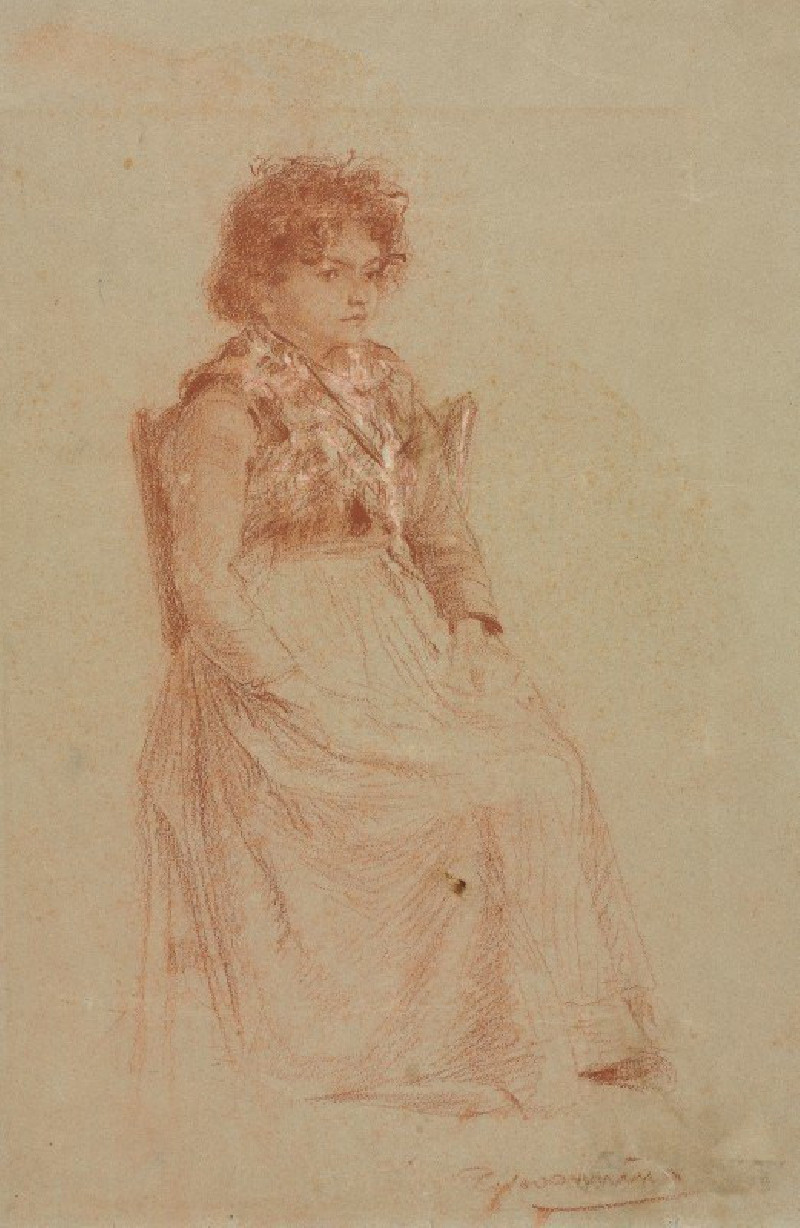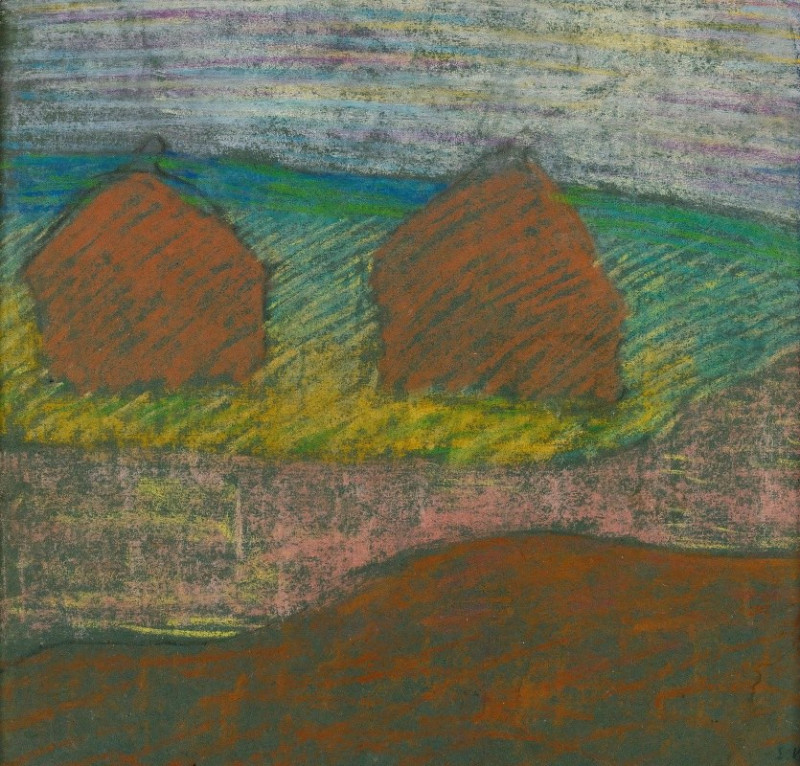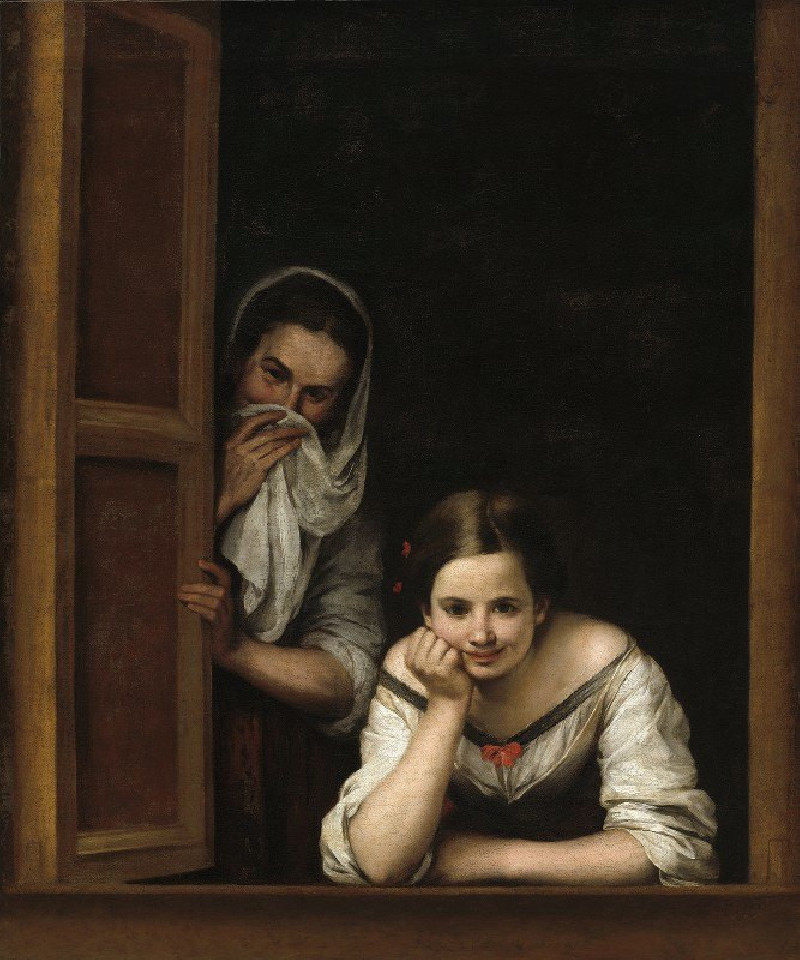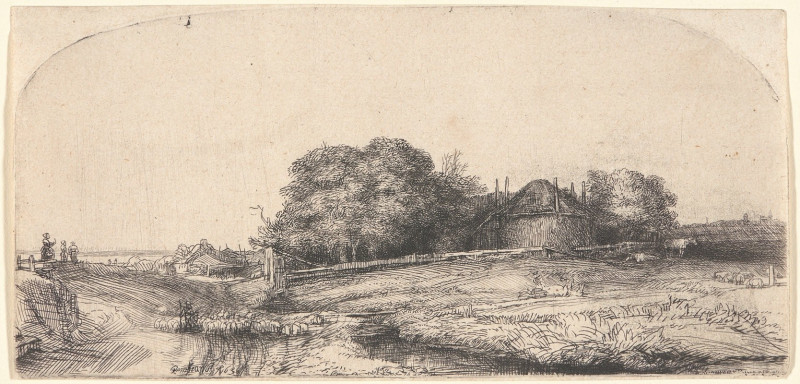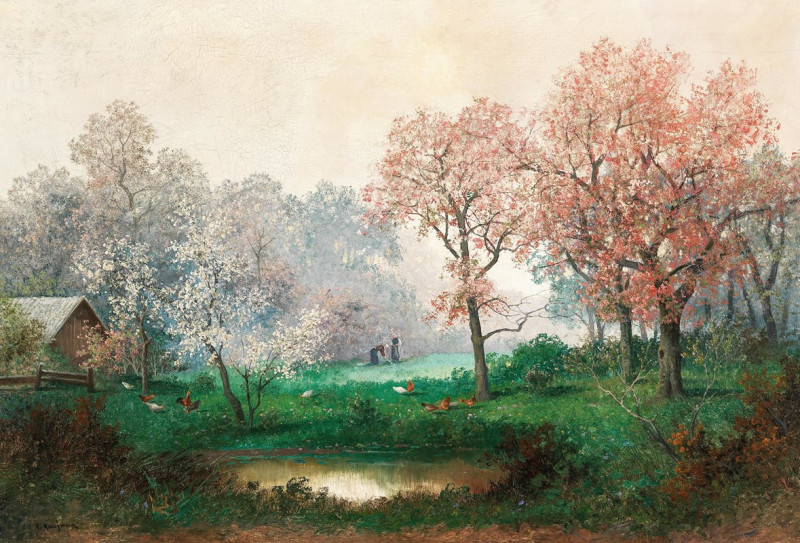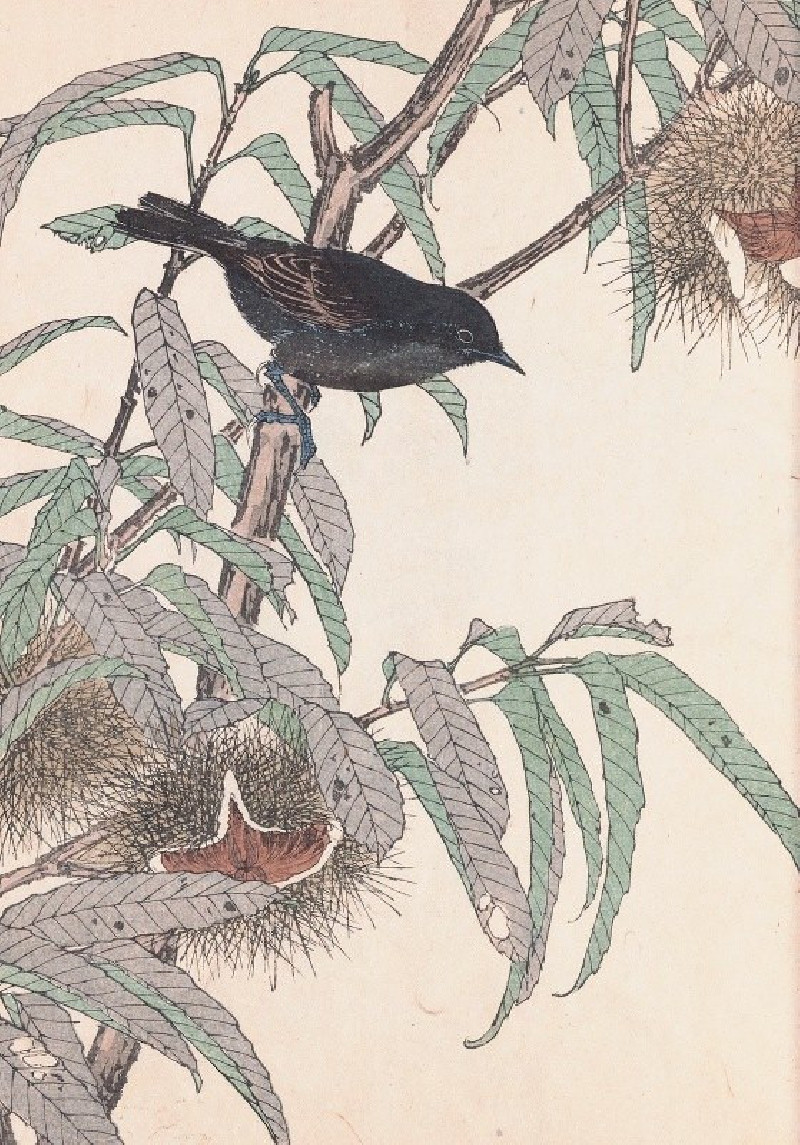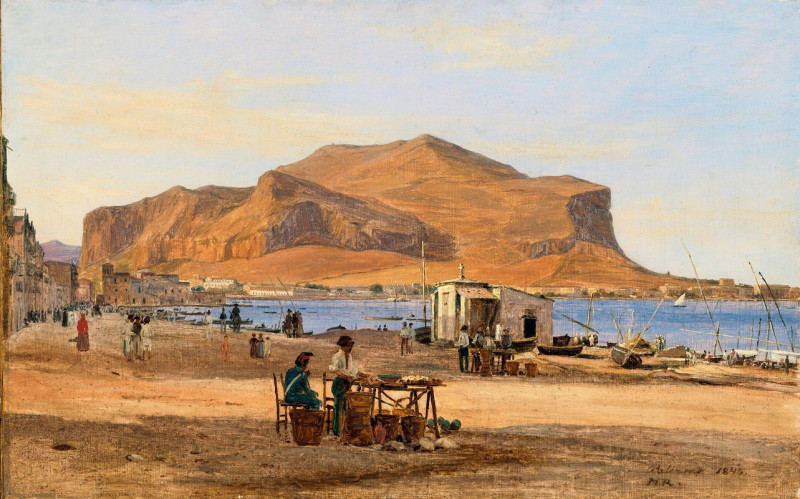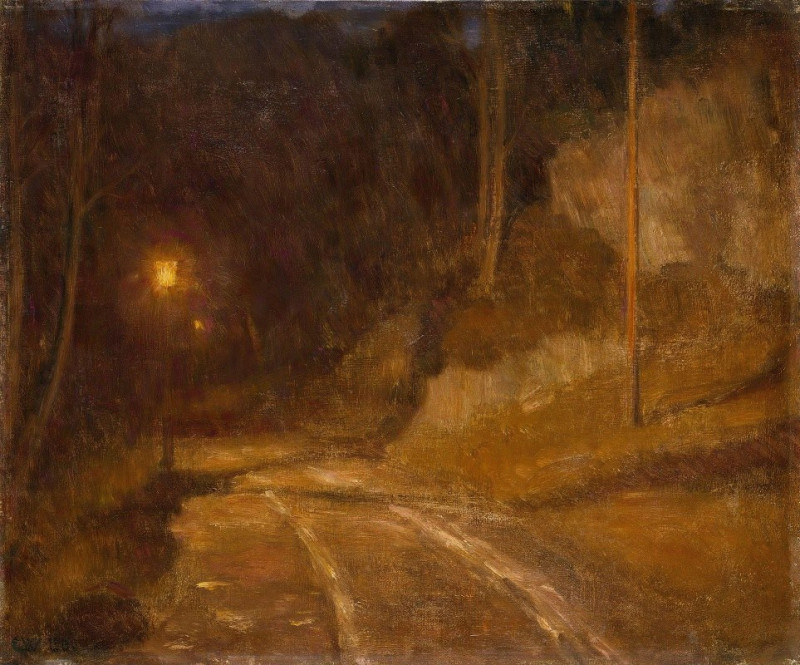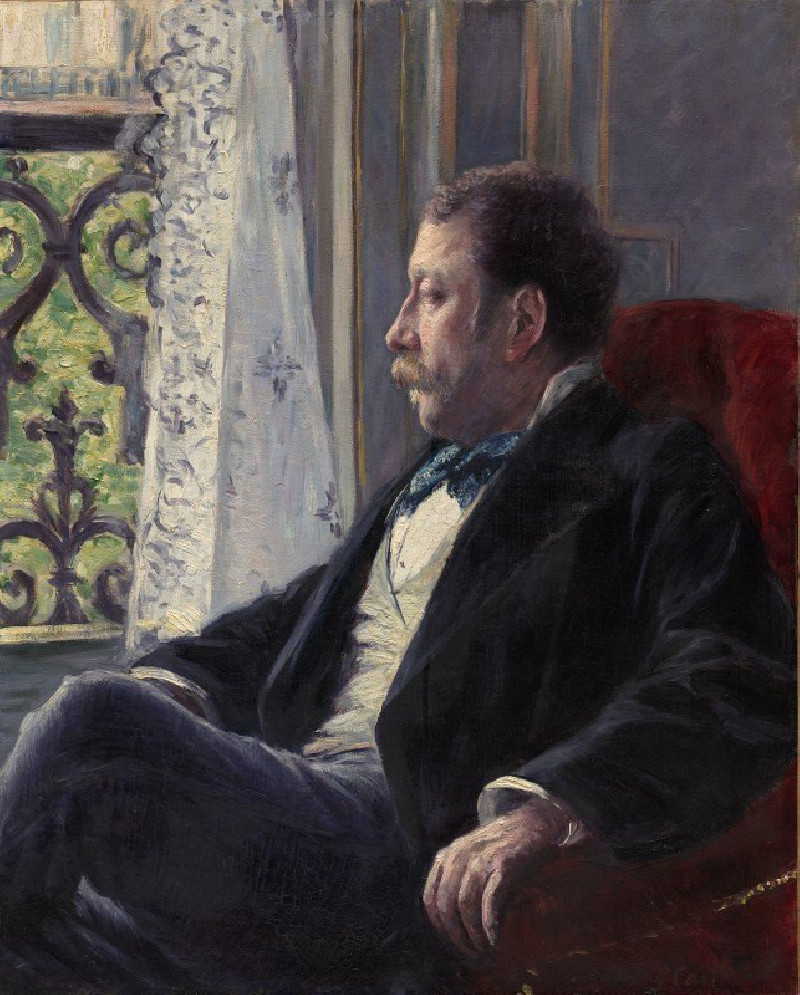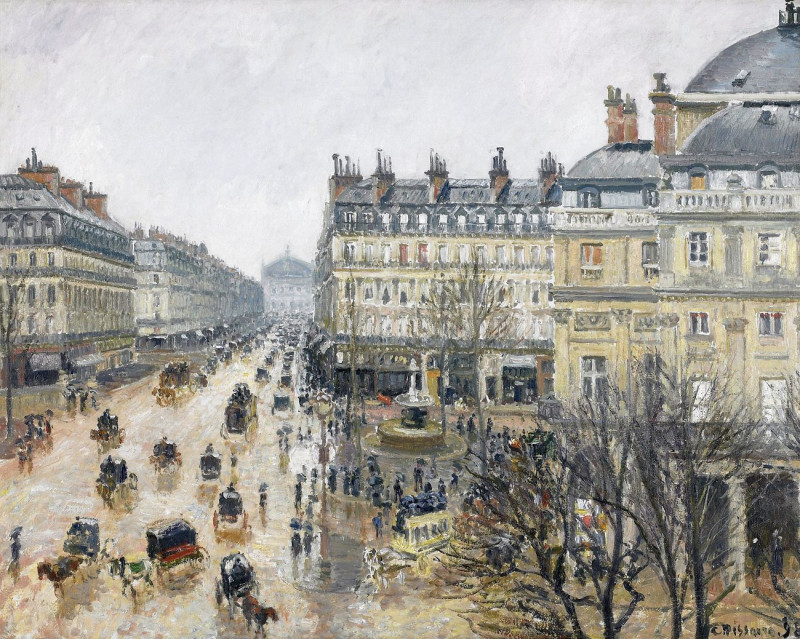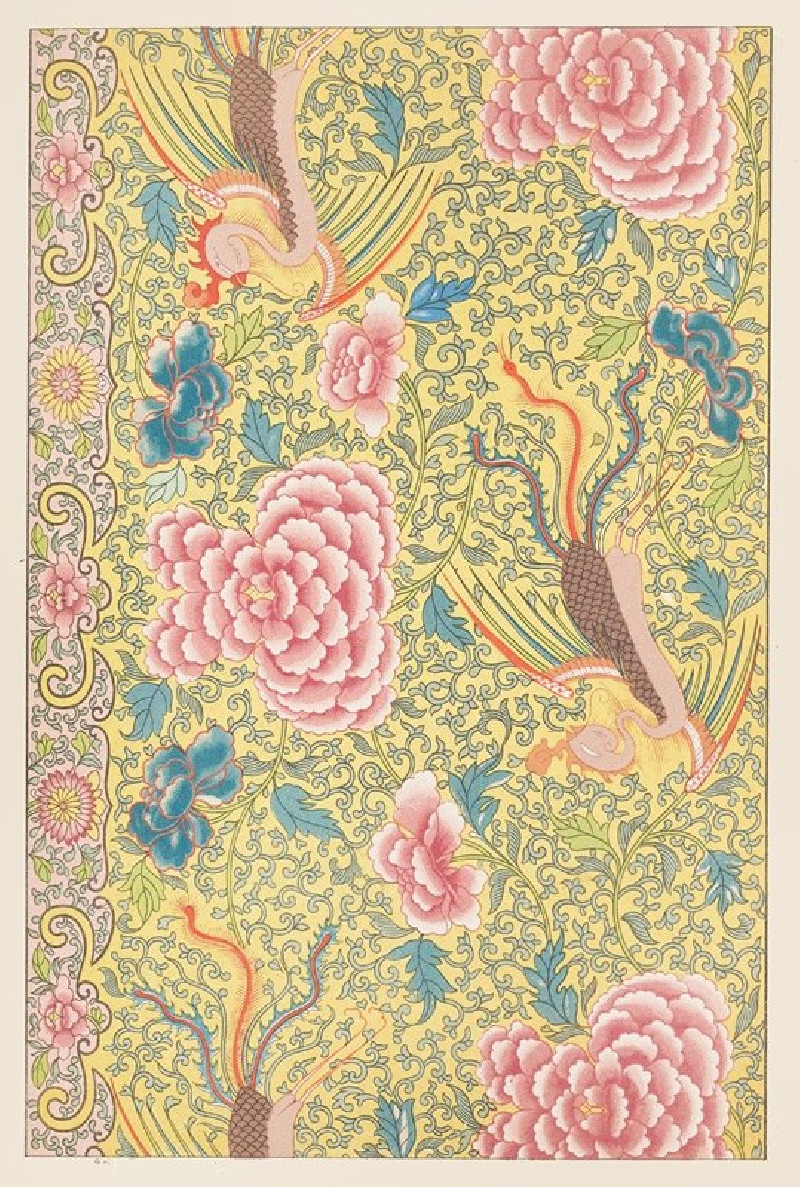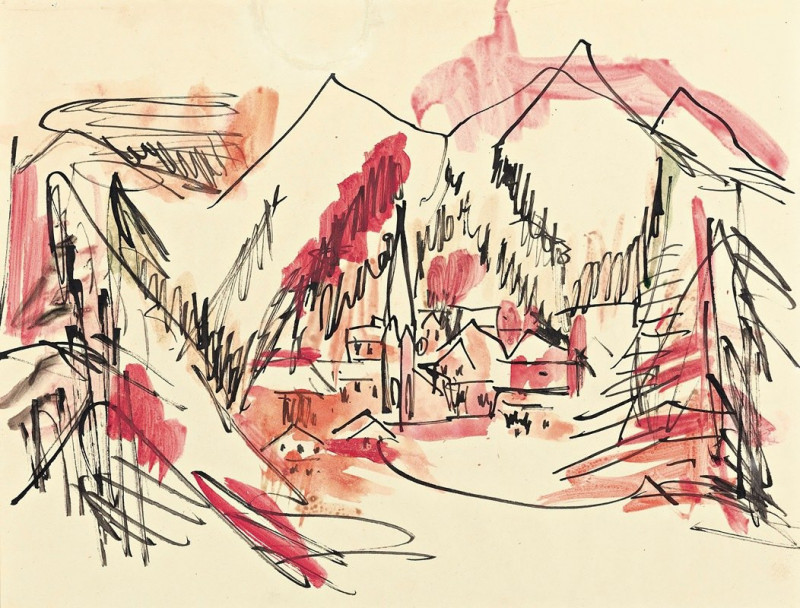Allegory of Spring (1882-1888)
Technique: Giclée quality print
Recommended by our customers
More about this artwork
Auguste Rodin, primarily celebrated for his sculpture, also created magnificent works on paper, such as "Allegory of Spring." This evocative etching, crafted between 1882 and 1888, transcends the conventional boundaries of artistic mediums, showcasing Rodin's mastery in depicting dynamic and fluid motion with mere ink.The work features a central figure—a youthful, ethereal being—seemingly suspended in the air. This figure embodies the essence of Spring, replete with energy and vitality. Radiating from the core of the image, what appears to be beams of light or perhaps gusts of wind, suggest movement and the forward thrust of life that comes with the arrival of spring. The figure itself is drawn with a delicacy that captures the finesomeness of young buds and fresh leaves, symbolizing rebirth and new beginnings.The dynamic composition and the swirling lines around the figure enhance the sensation of a breezy spring awakening. Rodin's skillful handling of the etching needle brings out textures and depth, breathing life into this allegorical representation."Allegory of Spring" invites viewers to ponder the cyclic nature of life, renewal, and the perennial promise of rejuvenation.
Delivery
Returns
Rodin was born into a poor family. After earning a living through sculpting decorative stoneworks, he entered art school. He then applied a craftsman-like approach to his work and modeled the human body with the naturalism that latterly became his unique style. Considered as the founder of modern sculpture, Rodin's original works clashed with predominant figurative sculpture from traditional themes of mythology and allegory since he celebrated individual human physicality.


